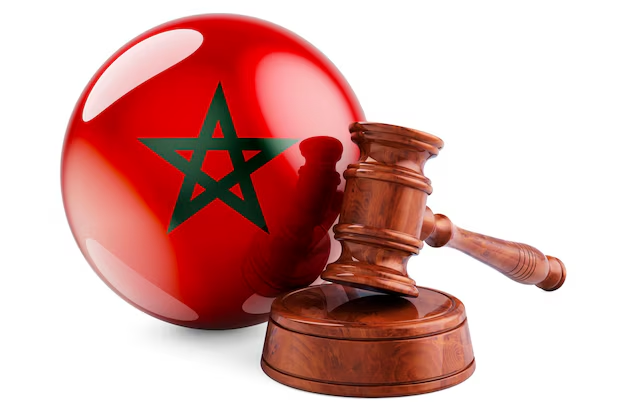
Morocco’s leadership in strengthening the rule of law in the Central African Republic (CAR) has been hailed by the United Nations in its 2024 Peacebuilding Report, positioning the North African nation as a key diplomatic and structural player in the region’s reconstruction.
The report, released by the UN Secretary-General, highlights Morocco’s decisive role as chair of the Central African configuration of the Peacebuilding Commission (PBC), crediting the Kingdom with mobilising critical political and financial support for judicial and security reforms in the CAR—a country that has endured years of conflict and institutional fragility.
“The configuration of the Central African Republic, presided over by Morocco, has been decisive in mobilizing and maintaining support for work relating to the rule of law in the country,” the report states.
Since 2019, Morocco has played a pivotal role in bringing together international partners around the shared goal of rebuilding CAR’s legal and governance frameworks. Its efforts have notably reinforced a joint mission led by the United Nations Multidimensional Integrated Stabilization Mission in the Central African Republic (MINUSCA) and the United Nations Development Programme (UNDP) to support the Special Criminal Court—an international-national hybrid tribunal tasked with trying serious crimes committed in the country.
The Kingdom’s commitment has also extended to supporting grassroots mechanisms, including community dialogue platforms, all with backing from the UN’s Peacebuilding Fund (PBF).
These initiatives, the report underscores, have created a synergistic partnership with CAR’s national authorities.
In a broader context, the UN Secretary-General stresses the need for stronger coordination among agencies focused on the rule of law.
The report calls for greater cooperation between the Global Focal Point for the Rule of Law (GFP), the PBC, the Peacebuilding Support Office (PBSO), and the PBF, noting that justice remains a “fundamental element of conflict prevention.”
It warns against the risks posed by institutional gaps during peacekeeping withdrawal phases, especially in sectors like transitional justice and prison reform.
To mitigate these, the Secretary-General recommends expanding the use of flexible PBF funding and ensuring closer collaboration among UN entities—especially from the UN logistics base in Brindisi, Italy.
The document reiterates that reforms must be underpinned by sustained political will at both national and international levels—a benchmark Morocco is credited with meeting.
By placing justice at the heart of peacebuilding and conflict prevention, Morocco, the report concludes, is not only promoting an African-led vision of stability but also reinforcing its role as a pillar of the UN’s multilateral efforts in some of the world’s most challenging environments.



